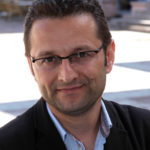
- Home
- 10.TH RMHS 2019
- Previous Years
- Testimonial
- Gallery
- Contact
- News
Testimonial
Summer Course on Research Methodology and Ethics6.RMHS PARTICIPANTS’ COMMENTS
I am a neurologist and working for my PhD thesis in Clinical Neurophysiology. I had attended to the ‘International Summer Course on Research Methodology and Ethics in Health Sciences’ last year. During the course, I improved my vision about research methodology, analyzing the data and applying statistical test, appropriately. In the light of these knowledge I applied statistical tests to my data myself and interpreted the results while writing my article which was published in Journal of Neurology, Neurosurgery and Psychiatry with an impact factor of 6.8. Sincere thanks to all lecturers and organizing committee for this fruitful course
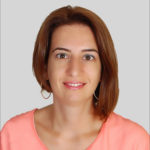
I work for a university research team and I think what I learned here is very useful for me to supervise and when analyzing annual reports of the results. My expectation was from this workshop to see different ways of methodology in a research. I think the lecturers have done a great job and allowing us to participate made us more focused to the topics. I must also mention that Level B is very beneficial when it comes to digesting what we learned in the Level A course.
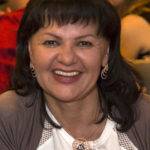
RMHS summer course at Koc University brings people together from different backgrounds and nationalities. It is a valuable opportunity to build professional relationships, exchange ideas and develop scientific partnership. I attended to the Level A and Level B workshops in 2015. The program for both levels was well prepared in terms of the content and the flow. As a physician I refreshed my knowledge of biostatistics and research designs. The hands-on sessions in statistics were especially useful. I enjoyed the stimulating discussions in research ethics, which included the emerging controversial topics in the field. Overall it was a great experience that I believe will contribute to the quality of future medical research by the trainees.
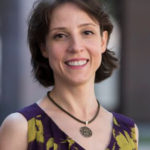
This is my second time with the course. I participated in 2013 and it was very useful for me back then and this year it is even better developed and tailored. The research methodology and ethical issues need to be taken very seriously and in the program we learn how to approach them as professionals. The advices and tips that we got for scientific writing is something I will definetly practice in my future endeavours as well.
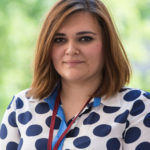
The main reason for me to do it again is when I was preparing my research proposal, I faced difficulties in ethical measurements. During the Research Methodology and Ethics workshop , I presented my concerns and the workshop helped me to address them. I’ m from Armenia and for the ethical issues, we still dont have any metrics to follow and I have so much to share with my colleauges back home now about the things I learned in RMHS.
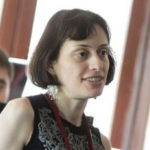
I think RMHS is good for the researchers since they get to learn and talk about the key points of how to establish and analyze the outcome of a research. My main focus was on statistics and what I learned from here will be a good kick-start to carry on with my practices. I got useful feedback about the randomization as well.

Before I didn’t have much knowledge about statiscal verse of a research but since I participated to the program it became an interest of mine. When I go back home, I will show extra care to apply the census to my research about “Anti-microbial Therapy” effectively. Beside the scientific writing, I think the case studies that we went through in Journal Club made the course very interesting and challenging. My advice to people who are about the start a research is to take their first step by participating The Research Methodology and Ethics program.
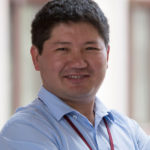
I think RMHS gives a great chance to go through the very important details of a research. I learned so much about the statistics and how to use the findings. This program is a ‘must’ for the professionals who are planning to start a research. RMHS helps to identify the question to make an acceptable observation when interpreting data collected from the findings to draw conclusion. We went through all the details including scientific english.
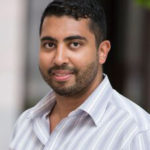
This is my second time taking this program. As in the first, I’m very satisfied to be here. I prefered to take this program before I go to Boston for my academic work and I decided to take it again after my return. I especially find the scientific english writing segment of the course very useful because it gives quite good tips to create a hook in an editorial level.
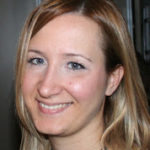
I am a PhD student in computational sciencesand engineering and studying modelling of infectious diseases. My research requires interdisciplinary work and this summer school gave me the occasion to interact with people from other disciplines especially with medical doctors who are very busy and usually do not have much time to discuss in a relaxed environment. Also the lectures were very informative and especially the group work and the discussions made my interest even grow. All in all, the summer school was a great opportunity to expand my academic horizon, to establish international and interdisciplinary networks.

5.RMHS PARTICIPANTS’ COMMENTS
As Azerbaijan is a country at the early stages of its development in medicine and bioethics, we think it is very important for us to make good use of the accumulated practice of those countries such as USA. Therefore, we direct our attention towards high-level scientific research work conducted by others and we tend to aim at receiving grants. All these activities are conducted by the joint work of Koç University and Harvard Medical School. We look forward to learning new things and use them efficiently. We aim to improve and enlarge the medical knowledge, research and bioethics in our country.
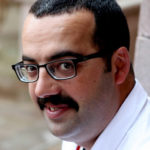
Because the course had representation among teachers and participants from various parts of the world, it helped us always maintain and to consider different perspectives, while also learning about universal standards of research and ethics. The relationships we gained with people from other lands, taking part in the intensive course meetings, sharing new insights with them, all brought a new dimension for me for my future work. In fact I believe that most of us here, perhaps with the exception of our very young friends, are people who have already walked on the academic road of career development. We can see potential mishaps and pitfalls much more clearly now and therefore are able to fill in the blanks much easier than before. In my opinion, this course is the most effective. I truly benefited and profited from the experience.
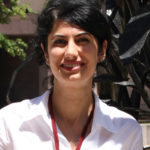
I believe the course had a tremendous effect on me. First of all it inspired a great wish in me, to read and research on the subjects of ethics and statistics; it increased my motivation considerably. Besides this, I now know what I want to do regarding grandscale work and research design, I am quite sure where I will start my work. There are some grants that I can apply for. I know which type of financial support I will apply to.
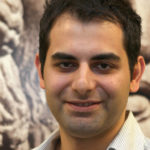
Doing the research properly, using the correct methods while research is very important. Because of these factors I believe that such courses will create a positive difference. I want to gather some knowledge regarding my future studies and also to exchange ideas, knowledge and experience with the teachers who come from afar as well my new friends in Turkey.
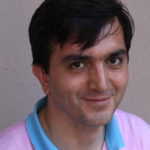
As a faculty member at Azerbaijan Medical University, I am expected to do research work. We appreciate the opportunity to learn research methods and ethics. I am completing my PhD, and this course is very important because I have to concentrate on the scientific and ethical design of my study. This course is therefore very important for me. Level A helped me with the statistics and research methods. I really do not like statistics but it is essential for all researchers to learn about its basic principles. I do not have to be a specialist in statistics and ethics but I need to learn more about their principles. I also really wanted to learn about the logistic part of the research such as epidemiology and ethical study design.
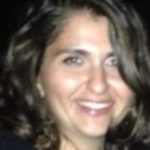
The reason why such programs are very special for me is the fact that statistical methods and bioethics need to be handled more practically during clinical research. Rather than containing highly detailed instructions and an education based on a theoretical frame, the course comprised of easy to use examples, completely cleaned from redundant information, in order to provide practical guidance for our work; a compact program that was highly concentrated but yet simple and comprehensive. These aspects all made the experience quite special.
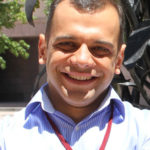
I wanted to gain a different perspective, to learn how the world deals with these matters and conducts the teaching, the instructorship, I wanted to see the action and here, I did reach my goals. Ethics is a very important dimension of our work. Therefore it is also very important to have a new perspective regarding ethics. I also transferred the very same perspective to many other people. As this is a new window, I can say that it has really changed my view of the world and, I, in my turn, will relate this perspective to others.
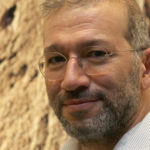
This course has provided me with great motivation and as I said before it is also a very high quality program. I was expecting something of the sort but it was much better than I imagined. I met many people and saw how many roads could open up for me. I have new ideas such as a master degree or a doctorate in foreign countries.
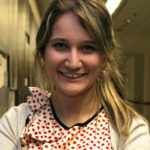
We have to obtain the knowledge we need in order to reach a higher and better status within the context of the international academic network of knowledge. Unfortunately, we do not have the necessary compact module education in our country. These venues of knowledge can be collected under three main headings: the first one is research; the second one is presenting and publishing the results of research; and the third is the ethical dimension of this research. Especially, this third level is a very new area for us. There are no written courses covering the subject of ethics, that we can learn ethics and put into practice in our research work. This is why I preferred this course. Actually, this is a very practical type of course; it is compact, with duration of two weeks. The fact that it especially provided epidemiologic knowledge, including statistics for clinical work, and giving extra explanations on various methods of practice during clinical work really attracted my attention.
